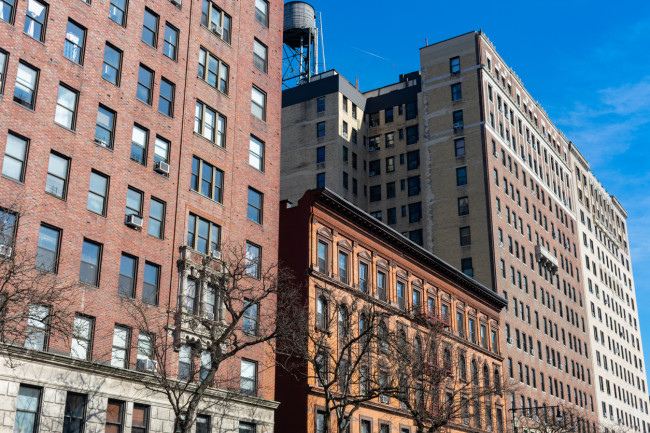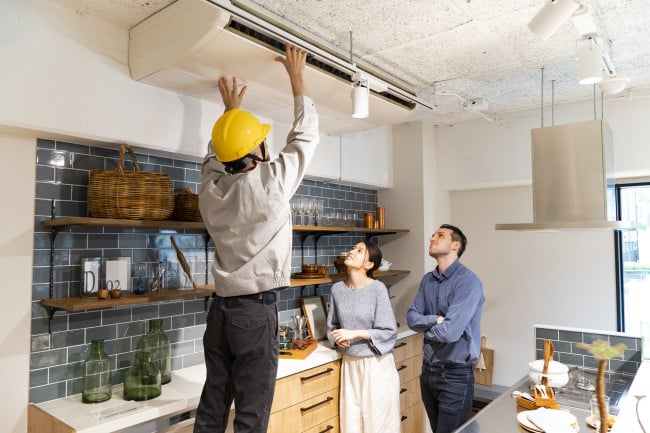- Find out what building and workplace management systems they’ve previously used
- Make sure to have a potential super go through a trial period before they move in

You want your super to be a good communicator, especially during emergencies.
iStock
A super can be an incredible resource for your building, and because they’ll often stick around at your condo, co-op, or apartment building for decades, there’s a lot your board should know before hiring a new one.
Some boards hire outside companies to provide the minimum level of service required under state and city law, but others employ a live-in super—who takes care of maintenance, helps out in emergencies, and serves as a point of contact for residents—to have more available assistance for residents and to boost apartment values.
Supers rarely leave their posts before they retire, says Daniel Wollman, CEO of property management firm Gumley Haft, which manages 75 residential co-ops, condos, and a few apartment buildings in NYC. So when a super does retire, be aware that the person your board hires to replace them could impact residents for years or decades to come.
Because the position is such a long-term commitment, your board should take a thoughtful approach to finding the best super for your building. Your board will want to make sure your building’s new super is a good communicator, familiar with building technology, and has relevant mechanical experience for the role.
It’s also best to have a trial period for any super before they move in to ensure that they’re a good fit for the building, says Mark Levine, principal at property manager EBMG.
“Whenever you're looking to hire a live-in super, you always do a 90-day probationary period that's outside of the unit,” Levine says. “Some people are great and they'll leave, but more likely than not, you're not going to be able to work within the timeframe that you need to have a new super come in, after this person, and move into the apartment.”
Read on for a list of questions your board should ask to make sure a potential live-in super is a good fit for your building.
Are they a good communicator?
It’s “massively imperative” that your building’s super is a strong communicator, Wollman says.
“People still want to say, ‘I live in 15A and this is my problem,’ and they want to be able to have a reasonable conversation with the person who is charged with getting the apartment fixed,” Wollman says. “You have to be able to communicate, you have to be able to supervise, and you have to understand the infrastructure.”
Much of the super’s job will be dealing with residents, so it’s crucial to hire someone who can communicate effectively and clearly. Peter von Simson, CEO at property manager New Bedford Management, recommends asking a candidate “how often they communicate with the assigned property manager and in what format,” to get a sense of a super’s past communication skills.
Also, a board should ask what method supers have used to communicate, like through Facetime or Zoom, and if they have previous experience presenting a report on their work during monthly board meetings, says Simson. That way, a board has a sense of how involved a super has been at a past property.
Are they tech savvy?
Buildings and boards are increasingly investing in new technology to help manage property, and supers need to be ready to adapt to new systems, Wollman says. Your board should ask whether a potential super has experience with a building management system or with remote monitoring of the building’s systems, such as heat.
“These jobs are becoming more and more technologically advanced,” Wollman says. “We have these building management systems which can be run from a computer or your iPhone where you can control a fair amount of the infrastructure of the building…Everything has that technological point to it.”
Your board should also ask what technology the super previously used to manage their own daily, weekly, or monthly tasks, Simson says. And when it comes to interacting with residents, you should have a sense of the super’s experience communicating through online messaging or meeting platforms.
Do they have mechanical experience?
Having a super with a deep understanding of how the buildings HVAC and other systems work is a huge asset. Gustavo Rusconi, vice president and director of management at Argo Real Estate, says he routinely asks about a super’s mechanical experience in interviews.
Your building’s super should know how to maintain HVAC, electrical, and plumbing systems. While they may use licensed plumbers on big jobs, having a super with a deep knowledge of building mechanics allows them to fix small problems as they crop up, a huge reason why a super can save a building money in the long run, Wollman says. And it’s yet another reason why your board should compensate your super fairly, he added.
“If you have a really good super, you shouldn't pay them an unlimited amount of money but haggling over $5,000 in a building that has a $5 million budget is sometimes silly,” Wollman says. “If I have a leak, and the super who I'm going to give the extra $5,000 to can more easily diagnose it or be able to shut the water off than anyone else is going to be able to, then I made back my $5,000.”
To get a strong sense of your super’s experience, your board should ask a potential hire what building systems they have in their current property and how they interact with maintenance companies when they come to a building, Simson says. A super’s understanding of a property’s mechanicals will also let them communicate problems more effectively to outside contractors if they can’t do the work themselves.
Sign Up for our Boards & Buildings Newsletter (Coming Soon!)
Thank you for your interest in our newsletter. You have been successfully added to our mailing list and will receive it when it becomes available.






















